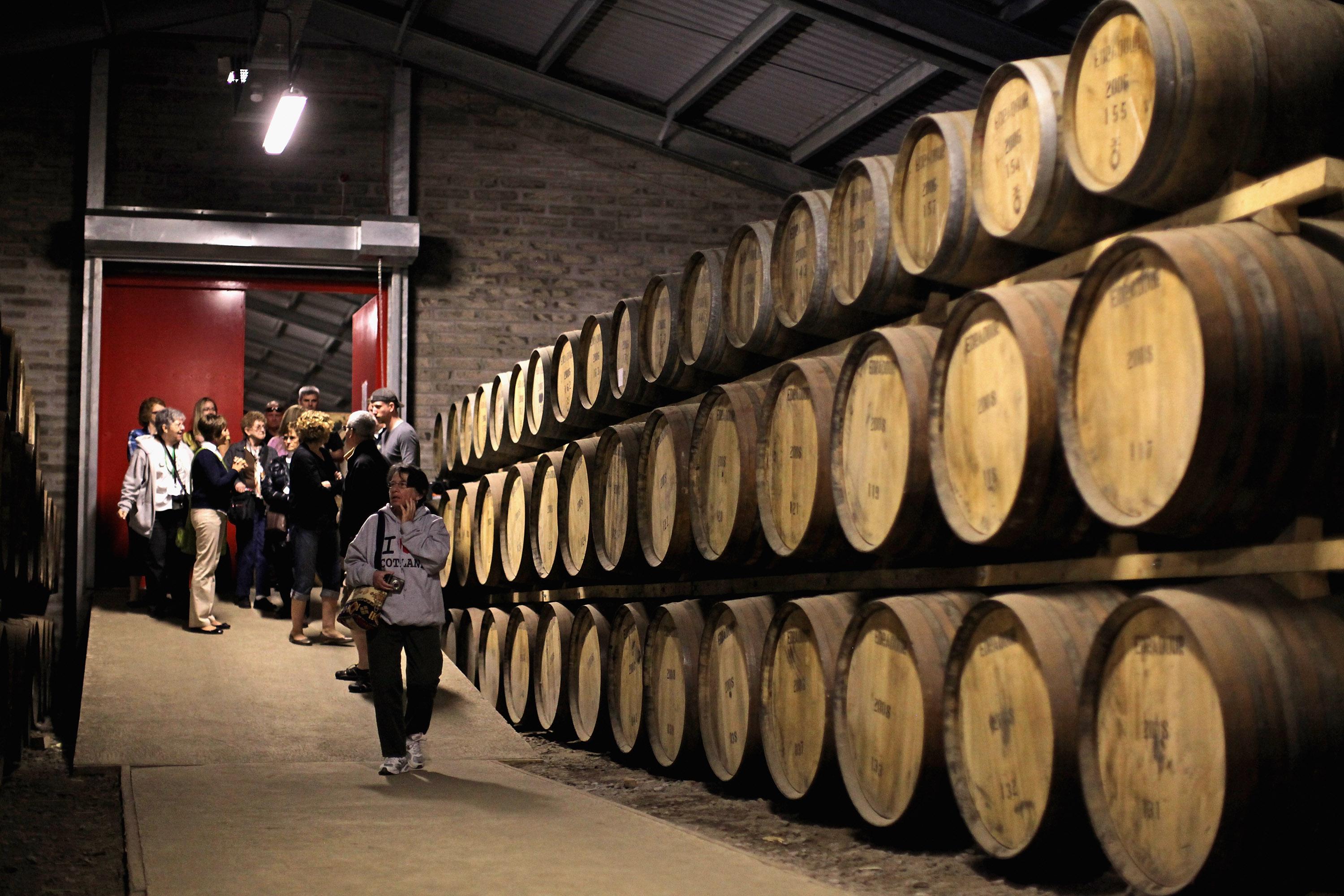This article originally appeared in Inc.
Boutique American distilleries are having a moment. But just because you’ve figured out the perfect recipe for your artisanal whiskey doesn’t mean you can start selling it. There are three levels of red tape craft distillers have to get past—federal, state, and local, which can entail cities and/or counties—and many rules are time-consuming, and often non-existent. (One distiller I spoke with said it isn’t unheard of for local authorities to go back to the books and look up workarounds.)
Washington is home to the most craft distilleries (80), while Colorado (50) and Michigan (about 40) trail closely behind. The reason for this, says Bill Owens, founder and president of the American Distilling Institute, is their progressive legislatures. In Michigan, that means being able to open tasting rooms downtown where tourists can see them and operating your distillery in town, not near a refinery.
Yet in states like Arizona, where craft distilling is a fairly new phenomenon, entrepreneurs face an uphill battle trying to secure their licenses. With that in mind, here’s an overview of some of the red tape craft distillers encounter as they try to get off the ground.
Federal
Most distillers I spoke with said this step of the process is cut and dry, but there are still some things to watch out for. The application for a federal license is essentially “a full background check,” warns Rick Burch of CaskWerks Distilling Co. in Tempe, Arizona, “and they’re really concerned with your plan for security as far as how you’re going to secure your facility from potential hazards such as fire, theft, and internal theft.” This means you’ll need to lease or purchase your facility beforehand and be prepared to explain how you’ll protect it. You may also be asked to include documentation as proof you’re in charge.
Speaking of background checks, make sure your record is clean. “They want to know your family history,” says Burch, “you can’t be a felon; you have to be a good, upstanding citizen.” Questions may pertain to your spouse, your top investors, and from whom you secured a loan. It’s in-depth and rife with personal questions.
Another concern to keep in mind is taxes. Say you have $100,000 worth of whiskey but lose most of it in a fire. Even if it’s gone, you’ll still be required to pay a tax to the government as if you had sold the whiskey. Why? Because it ensures you won’t get out of paying your taxes.
If you plan on producing new products—and who wouldn’t?—you may find yourself dealing with the feds more often. Every new formula must be approved. “You have to get data sheets on everything that goes in there, get label approval, and register new labels with the state,” explains Troy Roberts of Drum Circle Distilling in Sarasota County, Florida. For instance, getting his new coconut rum approved has taken three months so far, and he’s still waiting to hear back on his label. “Realistically, you have to give it six months before you get it in bottles,” he says.
State
Securing a state license isn’t so hard once you have your federal license, but rules vary wildly from state to state, and some are more hospitable to craft distillers than others. What’s clearcut in Florida may not be in Arizona, and New York has only become more welcoming in the past 10 years. Arizona didn’t even offer a craft distiller’s license until this year. “Originally, we were going to get the same license as a huge vodka manufacturer—a producer’s license,” says Burch, who advocated for the new license. “Now we can do craft fairs and farmers markets, and that counts as a sale from the front of our house.”
It also varies how people are allowed to market their spirits directly to customers. For instance, Roberts has a tasting room but can only sell two bottles of rum to each customer per year. “We have to keep track of who buys what,” he says. “We’re working on changing that.”
Wherever you are, find out the liquor laws in your state and get familiar with them. “If there is a domestic or micro-distiller’s license, that’s great,” says Burch, “because that means someone has gone before you and got that initiated.” If not, expect to encounter a lot of red tape.
Local
It’s the rare craft distiller who hasn’t had a run-in with local authorities. Roberts says, “They had no idea what to do with me,” when he applied for his license in Sarasota County. “They thought, you’re going to be a rum bar or a rum distributor because I’m the first craft distiller in this area.” Thankfully, once they did some research and figured out where he needed to be zoning-wise, things got a little bit easier. “The water people came out to make sure we’re not draining stuff improperly, the fire marshall had us make changes, sealing off space and installing bigger sprinklers, but there was nothing real difficult for us.”
That may have been because he’s outside of the city. Paul Hletko of Few Spirits in Evanston, Illinois, took three years becoming acquainted with Chicago’s maze of rules but still says craft distilling “is a heavily regulated business.”* He must track every “drop of alcohol” he produces, after all.
For this reason, Burch of CaskWerks recommends “making as many friends as you can” with local authorities, since it isn’t uncommon to go back and spend money on retrofitting to “satisfy someone’s request.” One friend had an inspector come to his plant and say everything looked great only to meet with another inspector who spotted something he didn’t agree with from the previous checklist. “Some get an overzealous fire marshall,” Roberts says.
See also: Michael Dell’s Must-Read Books
*Correction, Sept. 4, 2014: This post originally misspelled the last name of Few Spirits’ Paul Hletko.
